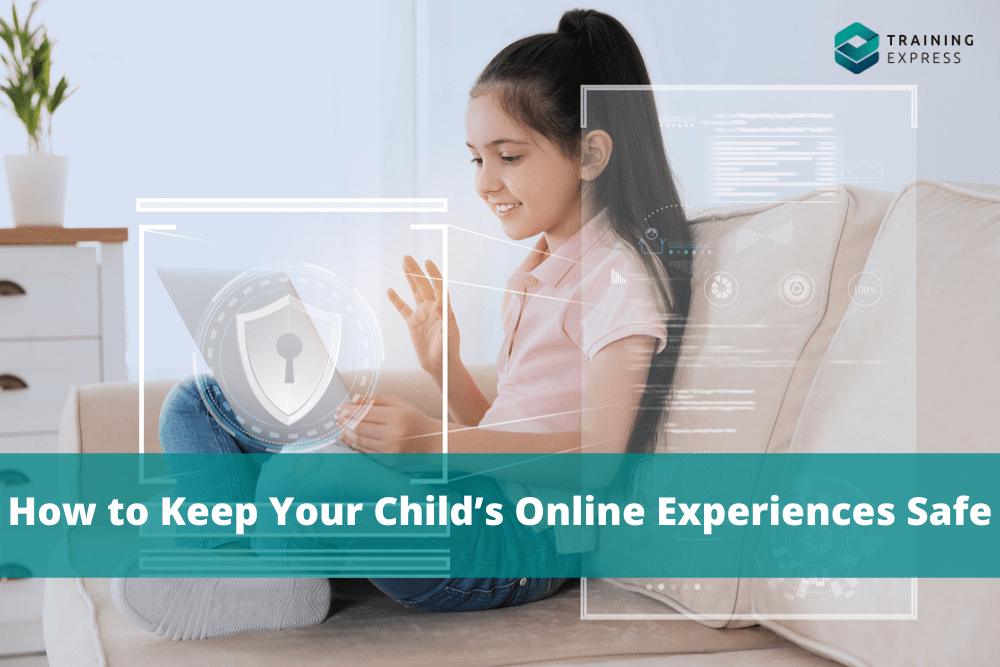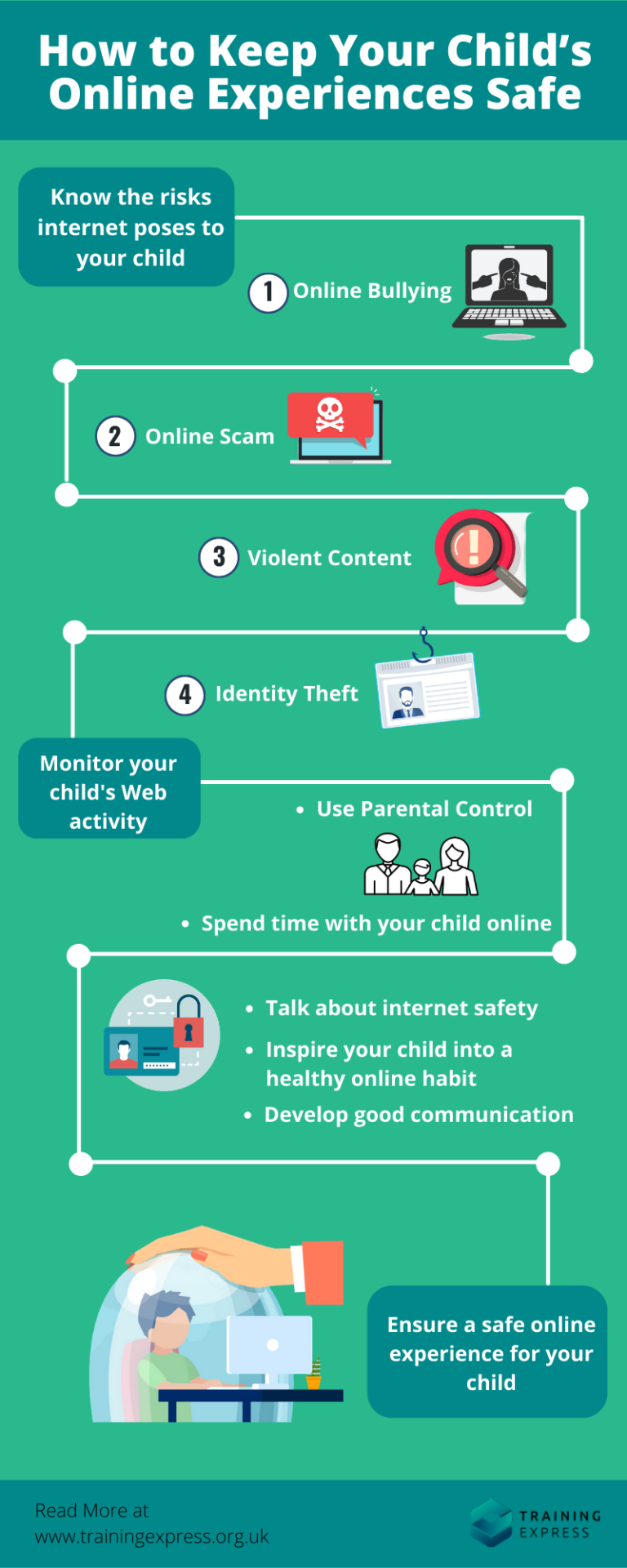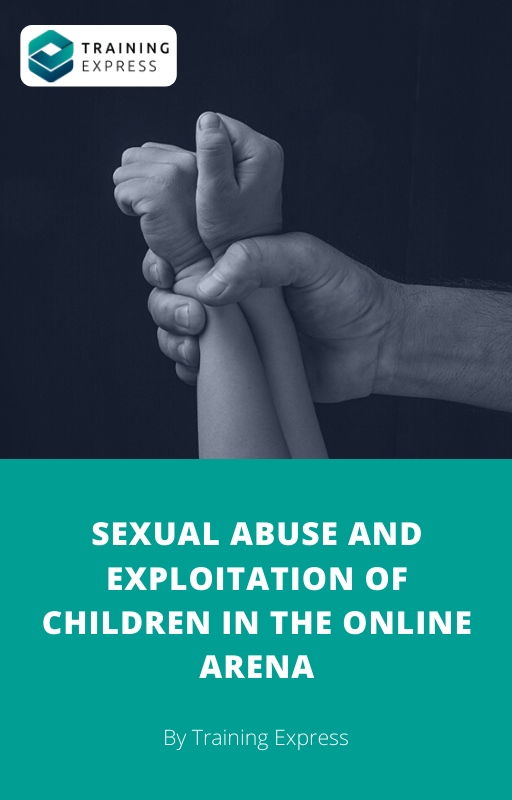
Internet may provide us with endless opportunities and freedom, but those come with some serious risks and consequences. The social media, in particular, is a minefield of online hazards. Children starting from the age when they get in touch with technologies till they are 18, may become victims to the online threats, especially if you as a parent, are not aware enough.
What dangers lurk on the internet?
How can you ensure the safety of your child’s online experience if you don’t know what threats the internet poses?
If you don’t let your child know about these risks at an early age, they can put you and your family at risk too. Almost half of the children ageing from 12-15 who go to online have experienced hateful content, which is really harmful against a child’t mental growth.
So, here is a list of potential online dangers that can pose a threat to your child’s online experience.
01. Online bullying
It’s not different from actual bullying, the act of repeated and deliberate verbal aggression and causing someone harm. But online bullying is done using electronic communication and digital technologies. For example, posting someone’s private information online and threatening them, spreading rumours and sending hate messages, impersonating someone with an intention to embarrass them etc.

Places like social media, messaging apps on mobile phones, online forums, gaming platforms are very common where people become victims of cyberbullying or cyber-harassment. You’ll never know when your child or your family are being targets of some cyberbully’s illicit intentions. And it can affect your child’s emotional, psychological and even physical behaviour too.
02. Online scam
This is another common illegal activity done by cybercriminals who set traps on almost every virtual platforms to deceive people. Your child might not have any idea about online scam or fraud while they’re surfing on the internet. And some cybercriminals disguise themselves only to target the children to steal any valuable and financial information from the devices your children use.
Some common examples of online scams include:
- Unwanted emails or flash messages claiming you’ve won some amazing prize, but you’ve to provide your credit card information first to receive the gift.
- Early access to special offers or gaming features for free without explaining why.
- Getting gift cards or greeting cards with pop-up ads on special occasions e.g. Christmas or Easter. Clicking on these ads can inject malware on your device and gather valuable information.
- Fake anti-virus or scareware to coax you to believe you can get rid of malware on your device by clicking on the link and installing it.
- Fraudulent posting of non-existent job offers claiming that they can provide you with methods to get rich quickly
- Tech support online, which is a very common sort of online scam that cybercriminals pull these days. When you get calls from unknown numbers, and they tell you that your computer got hacked or sometimes deliberately blocking your access to any site and calling you to pay first for the solution, it’s definitely a scam!
03. Violent content
One of the most common and utmost threats your child can face while surfing the internet is exposure to explicit or violent content. As much as the internet seems like an open platform where people feel free to share anything, the boundaries to what people can actually post are not filtered enough. As a result, your child could be watching what they are not supposed to.

Even though your child may find explicit content on the internet by accident, many others will look for this sort of content. And children are quite good at hiding something from their parents.
Exposure to violence has detrimental impacts on children’s behaviour such as acting aggressively.
04. Posting Personal Information
Posting any personally recognizable information online e.g. images with home address, financial and any confidential information about your identity can put you at risk. Even your child can post valuable information online not knowingly. This eventually leads to some unwanted cybercriminals blackmailing or harassing you for something they want.
05. Identity Theft
It’s a cybercrime when someone intentionally obtains personal information of others to commit fraud without the victim’s consent. Identity thieves often use a victim’s credentials to gain access to social security numbers or credit card information to make unauthorized transactions.

In most of the cases, the identity thieves get the information by infecting computers using malware and using illusive emails or text messages.

How to become vigilant about your child’s behaviour online
It’s the duty of parents to monitor their children’s online activities. Firstly, you’ve to know and understand what your child is doing online.
01. Monitor your child’s web activity
02. Install Content filtering software
You can put mature content filtering software or malicious website blocking software to protect your child from pornographic or violent images and protect your personal data as well. Using software like CleanBrowsing, Qustodio or OpenDNS you’ll be able to monitor and control your child’s online activity remotely.
03. Establish ground rules for web surfing
Every parent must perform their roles to adopt control measures and set foundations for calm family conversations. Teach your kids how to use the internet properly. Talking and explaining to your child about the negative effects of using the World Wide Web will help you establish a relationship of trust with your child. If your kid faces something they are unfamiliar with, they will inform you first before engaging in. But not all children feel free to talk to their parents about the things they do online. Therefore, it’s the duty of the parents to establish fair rules based on family principles. Here’s how you can set some rules for your child’s web activity:
- Don’t let your child use their devices at dinner time.
- Set specific web surfing or internet use time.
- Know about which game your child plays online. If it’s age-inappropriate, restrict it.
- Use parental controls to restrict the access of certain apps, games and websites that you don’t want your child to play.
Making rules is easy but implementing them every day can be quite difficult. However, you have to make sure that your child grows up knowing the rules and boundaries to stay safe online.
Things your child needs to know
Once you’ve got yourself up to date with the latest technologies and the risks associated with them, you are halfway through ensuring safety for your child’s online experience. However, you need to explain certain things to your child so that they can stay safe when you’re not around.
01. The internet is forever
Anything you put on the internet, no matter how old, could be there until you have grandchildren of your own who will be googling you.
02. Don’t put personal information online
If you post your personal information online, it leaves you open for attacks from either cyberbullies or someone who want to take advantage of you. You shouldn’t make your personal information visible to everybody.
03. Phone safety is important too
In an era of smartphones, cyber safety should extend to your phone too, especially when it comes to tech safety. Don’t accept phone calls or texts from unknown numbers. You should only answer texts and phone calls from your contact list.
04. Handle hacking intelligently
One downside of being a member of the World Wide Web is that no matter how careful you are your account may get hacked. And there are few things to do when you get hacked to ensure your safety.
- Change your password and make the new one secure and unpredictable.
- Switch to your email service provider’s 2-step verification.
- Check your sent box and let any affected people know as soon as possible that your account got spammed.
- Use antivirus software on your computer to scan for any virus and remove them.
- Back up your files. If the antivirus can’t remove any potentially harmful virus from your computer then it’s better to back up your files in advance. Therefore, you should have a portable hard drive so that you can back your files up to keep it somewhere safe.
Things you can do to ensure the safety of your child’s online experience
You won’t be able to monitor and control all the activities of your children. But in your own home, you have a lot of control over what your child is doing. You have to explain to your child how daunting the dangers of social media can be, and for that to happen all you need to do is follow these 4 steps.
01. Develop good communication with your child
This is the foremost thing you can do to ensure your child’s online safety. Discussing online safety at an early stage will help you explain the things your child need to protect virtually.
- Pay attention while listening to your children. Make them feel that you are focused on the conversation, and you value their thoughts and feelings.
- If your child is feeling anger, frustration, fear or anxiety, it’s your job to make them comfortable to discuss it with you.
- If you find that your child is being secretive about something don’t push them or lose your temper.
- Try to understand their body language and tune in to respond accordingly. This way you can gradually explain the things your child need to know about online safety.
- Tell your child to interact with friends online who they actually know in real life.
02. Teach your child to always get permission
Children in primary schools are very capable of using computers and tablets to go online. However, they don’t have critical thinking skills yet to be left alone with these devices. At this age, children tend to accept anything they see appear before them. They may be scared by the images they see. And they may unintentionally be exposed to inappropriate websites.
So, teach your child to always take permission before using the computer and always try to sit with them. If you can’t sit with them, make them use the computer in an open area, so you can see what they’re doing.
03. Talk about internet safety
Remind your child not to give out information through emails and registration forms. If they are unsure about anything, encourage them to inform you first. Teach your child everything they need to know about using social media and other website browsing so that they can maintain the privacy to protect themselves.
04. Encourage openness
Encourage your child to come to you if they encounter anything online that makes them feel uncomfortable or threatened. You should never get angry or blame them if anything bad happens otherwise they won’t turn to you when they need help in the future. You should solve the matter calmly instead.
05. Spend time with them online
Children always tend to follow their elders. They learn from what they see around them. So, it’ll be a great influence on them if you can spend time with your child online. Showing them first hand what to do and what not to do will help your child to learn about online risks and safety quickly.

Befriending with your child on social media will allow you to monitor more about their online activities. It’s easier this way to help your child recognize misinformation and age-inappropriate content and avoid them.
06. Inspire your child into a healthy online habit
Kids spend most of their time online. And almost every website contains advertisement promoting unhealthy foods, gender stereotypes, age-inappropriate contents or even scam ads. Helping your child recognize the ads that pose a threat, and showing them how to browse the internet properly will help them do the same when you’re not around.
Familiarize your child with the school policies and emergency helplines in case they fall in danger of any potential threats.
Monitor your child’s behaviour online. Encourage them to be warm-hearted and respectful to their teachers and classmates.
If you rear your child with the necessary knowledge and guidelines to protect themselves online, they will be safe outside your home too. You can check our blog that enfolds everything you need to know about children protection policy at schools.
Conclusion
Though the internet is providing us with lots of benefits in our day-to-day life, it exposes us to plenty of danger zones too. Children are vulnerable to the risk of online dangers and need continuous monitoring and support. However, staying vigilant, aware and interested is the best way to keep your little ones out of harm’s way.
Safeguarding Children Level 3
Safeguarding Children Level 3
- Available Courses
- Career Bundles73
- Animal care5
- Law8
- Quality Licence Scheme Endorsed111
- Teaching13
- Teaching & Academics Primary27
- Accounting & Finance Primary30
- Training3
- Design9
- IT & Software44
- Healthcare126
- Marketing31
- Health and Safety402
- Construction48
- Electronics25
- Hospitality22
- Health and Social Care219
- Child Psychology37
- Management377
- Business Skills268
- First Aid70
- Employability264
- Safeguarding75
- Food Hygiene103
- Personal Development1277
 Food Hygiene
Food Hygiene Health & Safety
Health & Safety Safeguarding
Safeguarding First Aid
First Aid Business Skills
Business Skills Personal Development
Personal Development








